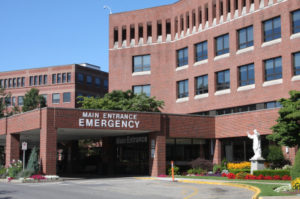MACPAC Looks at Medicaid, CHIP Issues
The Medicaid and CHIP Payment and Access Commission (MACPAC), the independent, non-partisan federal agency that advises Congress on the Medicaid and CHIP programs, met in Washington, D.C. recently to examine a number of issues under its purview.
 During two days of meetings, MACPAC heard staff presentations on the status of Medicaid expansion, sites of care for the delivery of Medicaid services, Medicaid eligibility and enrollment issues, Medicaid behavioral health populations, and more.
During two days of meetings, MACPAC heard staff presentations on the status of Medicaid expansion, sites of care for the delivery of Medicaid services, Medicaid eligibility and enrollment issues, Medicaid behavioral health populations, and more.
See these and other presentations here, on MACPAC ‘s web site.








